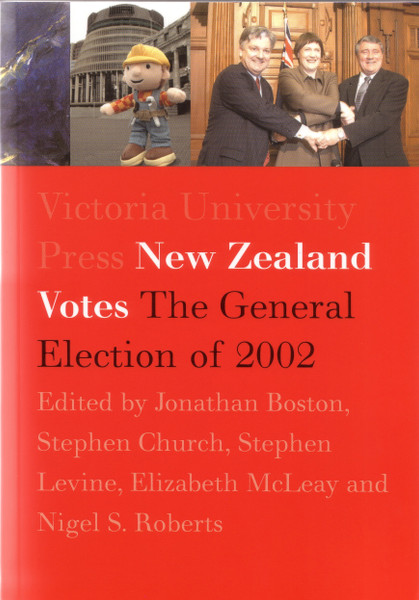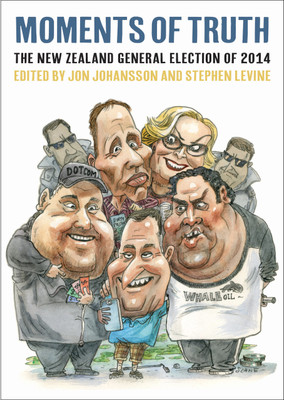Hide Description- Show Description+
Winner of the New Zealand Electoral Commission Wallace Award for the best academic paper, monograph or book on New Zealand electoral matters published in the 18 months to 31 October 2004
New Zealand Votes looks at an election campaign dominated by bizarre events: The Worm, Corngate, Paintergate and Bob the Builder.
The 2002 election is called early but the government rejects claims it is a snap election. The campaign coincides with a police investigation of Prime Minister Helen Clark's signing of a painting that she hadnt painted. Midway through the campaign a book is released claiming a government cover-up of the release of GE corn seed into New Zealand. Prime Minister Clark is ambushed on television in a dramatic confrontation with TV3's John Campbell. The Alliance is annihilated, but Jim Anderton makes it back into Parliament. After 18 years in Parliament, Peter Dunne becomes an overnight success. The worm returns. So does Winston Peters, in alliance with a cartoon character, Bob the Builder.
New Zealand Votes looks at an election marked by incident and the unexpected. The election, from start to finish, is seen through the eyes of party strategists, candidates, journalists and scholars of New Zealand politics. Twenty-eight chapters discuss, analyse and interpret what happened and why. The key post-election events – the formation of a Labour-Progressive coalition with support from United Future and the Greens – are documented.
New Zealand Votes comes with a CD (playable on computer) providing clips of Campbell's interrogation of Clark and of Dunne's mastery of the worm. The CD also makes available extracts from campaign broadcasts by Labour, National, New Zealand First, ACT, the Greens, United Future, Christian Heritage, the Alliance, and the Outdoor Recreation Party. The CD is a vivid record of the election campaign and illustrates the themes of an unusual and colourful contest.
Jonathan Boston, Stephen Levine, Elizabeth McLeay and Nigel S. Roberts are all political scientists at the Victoria University of Wellington who have collaborated on a wide-ranging research project into the effects of MMP on New Zealand's government and politics. From 1999 to 2002 Stephen Church was a Research Fellow at the Victoria University of Wellington.






